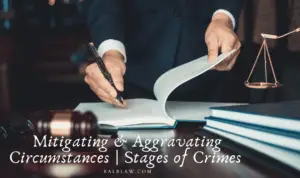The crime of treason is one of the gravest offenses under Philippine law, striking at the very heart of national security and sovereignty. Nevertheless, the law does not only punish the actual commission of treason. It also penalizes the mere agreement or proposal to commit such a crime, thus, the felony of Conspiracy and Proposal to Commit Treason.
This is embodied in Article 115 of the Revised Penal Code (RPC), as amended by Republic Act No. 10951. This blog post provides an extensive, jurisprudence-based, and up-to-date discussion of Article 115, focusing on its text, historical context, legal elements, penalties, and relevant Supreme Court interpretations. The analysis will also explore the rationale behind criminalizing conspiracy and proposal to commit treason, compare it with similar provisions, and discuss practical implications for legal practitioners and students.
Conspiracy and Proposal to Commit Treason
Article 115 of the Revised Penal Code, as amended by Republic Act No. 10951, provides:
“Art. 115. Conspiracy and proposal to commit treason; Penalty. — The conspiracy or proposal to commit the crime of treason shall be punished respectively, by prisión mayor and a fine not exceeding Two million pesos (₱2,000,000), and prisión correccional and a fine not exceeding One million pesos (₱1,000,000).”1
This provision is a clear legislative statement that the law does not wait for the actual commission of treason before intervening. The mere agreement or proposal to commit treason is already punishable, albeit with lesser penalties than the consummated crime.
Historical and Legal Context
The Nature of Treason
Treason, as defined in Article 114 of the RPC, is the act of levying war against the Philippines or adhering to its enemies, giving them aid or comfort. It is a crime against national security, and its gravity is reflected in the severe penalties attached to it.
Why Punish Conspiracy and Proposal?
The rationale for penalizing conspiracy and proposal to commit treason is rooted in the need to protect the State from threats to its existence. Treason is a crime that, if carried out, can have catastrophic consequences. By criminalizing even the preparatory acts—such as agreement (conspiracy) or suggestion (proposal)—the law aims to deter any movement toward the actual commission of treason.
Legislative Evolution
The original text of Article 115, as found in Act No. 3815 (the original RPC), imposed lower fines. With the passage of Republic Act No. 10951, the fines were significantly increased to reflect contemporary economic realities and to enhance the deterrent effect of the law.
Elements of the Crime
Conspiracy to Commit Treason
Conspiracy, in the context of Article 115, is not the general conspiracy defined in Article 8 of the RPC, which requires that conspiracy be proved as a means to commit a crime. Here, conspiracy itself is a distinct and punishable offense.
Elements:
- There is an agreement between two or more persons.
- The agreement is to commit treason.
- The agreement is decided upon and there is a unity of purpose and intent.
Proposal to Commit Treason
A proposal is a unilateral act. It occurs when a person who has decided to commit treason proposes its execution to another person or persons.
Elements:
- The person has decided to commit treason.
- He proposes its execution to another person or persons.
Distinction from Other Crimes
It is important to note that, as a general rule, conspiracy and proposal are not punishable unless the law specifically provides for it. Article 115 is one of the few exceptions, as recognized by the Supreme Court in Macapagal-Arroyo vs. People of the Philippines (2016):
“As a rule, conspiracy is not a crime unless the law considers it a crime, and prescribes a penalty for it. The exception is exemplified in Article 115 (conspiracy and proposal to commit treason), Article 136 (conspiracy and proposal to commit coup d’etat, rebellion or insurrection) and Article 141 (conspiracy to commit sedition) of the Revised Penal Code.”2
Penalties Imposed
Penalty for Conspiracy
Under Article 115, conspiracy to commit treason is punishable by prisión mayor and a fine not exceeding ₱2,000,000.
- Prisión mayor: 6 years and 1 day to 12 years imprisonment.
Penalty for Proposal
Proposal to commit treason is punishable by prisión correccional and a fine not exceeding ₱1,000,000.
- Prisión correccional: 6 months and 1 day to 6 years imprisonment.
Fines
The increase in fines under Republic Act No. 10951 reflects the legislature’s intent to make the penalties more commensurate with the gravity of the offense and the current value of money.
Jurisprudence and Doctrinal Application
Supreme Court Interpretation
To reiterate, conspiracy and proposal to commit treason are distinct, substantive offenses.
“As a rule, conspiracy is not a crime unless the law considers it a crime, and prescribes a penalty for it. The exception is exemplified in Article 115 (conspiracy and proposal to commit treason)… When conspiracy is a means to commit a crime, it is indispensable that the agreement to commit the crime among all the conspirators, or their community of criminal design must be alleged and competently shown.”3
This means that for a conviction under Article 115, the prosecution must prove the existence of an agreement to commit treason (for conspiracy) or a proposal to commit treason (for proposal), and not merely the intention or plan.
Evidentiary Requirements
The law requires clear and positive evidence of the agreement or proposal. Mere suspicion, association, or presence at the scene is not enough. The Supreme Court, in Macapagal-Arroyo vs. People of the Philippines, further clarified:
“Conspiracy transcends mere companionship, and mere presence at the scene of the crime does not in itself amount to conspiracy. Even knowledge of, or acquiescence in, or agreement to cooperate is not enough to constitute one a party to a conspiracy, absent any active participation in the commission of the crime with a view to the furtherance of the common design and purpose. Hence, conspiracy must be established, not by conjecture, but by positive and conclusive evidence.”4
Application of the Indeterminate Sentence Law
The Indeterminate Sentence Law generally applies to offenses under the RPC, but there are exceptions. As held in Romero vs. People of the Philippines (2011):
“It is basic law that the application of the Indeterminate Sentence Law is mandatory where imprisonment exceeds one (1) year, except only in the following cases: a. Offenses punished by death or life imprisonment. b. Those convicted of treason (Art. 114) conspiracy or proposal to commit treason (Art. 115).”5
Thus, persons convicted under Article 115 are not entitled to the benefits of the Indeterminate Sentence Law.
Comparison with Other Crimes
Conspiracy and Proposal in Other Offenses
The RPC generally does not punish conspiracy or proposal except in specific instances, such as:
- Article 115: Conspiracy and proposal to commit treason
- Article 136: Conspiracy and proposal to commit coup d’etat, rebellion, or insurrection
- Article 141: Conspiracy to commit sedition
This legislative policy underscores the exceptional gravity of these crimes, which threaten the very existence of the State.
Distinction from Attempted and Frustrated Crimes
Conspiracy and proposal are distinct from attempted or frustrated crimes. In attempted or frustrated crimes, there is an overt act toward the commission of the crime, but the crime is not completed. In conspiracy and proposal, the act punished is the agreement or suggestion, not any overt act toward execution.
Procedural and Substantive Issues
Proving Conspiracy or Proposal
Proving conspiracy or proposal to commit treason is inherently difficult, as these are often clandestine acts. The prosecution must rely on direct or circumstantial evidence showing the existence of an agreement or proposal.
Double Jeopardy and Other Defenses
A person charged with conspiracy or proposal to commit treason cannot be convicted of the consummated crime of treason unless the overt acts constituting treason are also proven. Conversely, a person acquitted of conspiracy or proposal may still be prosecuted for treason if the crime is later committed.
Retroactivity of Penalty Adjustments
The High Court in People vs. Fabros-Corpuz, et al. (2024) discussed the retroactive application of penalty adjustments under RA No. 10951, holding that such adjustments apply only if favorable to the accused.
Section 100 of Republic Act No. 10951 expressly states that the new law only has retroactive effect when it is favorable to the accused. The provision of law reads:6
SECTION 100. Retroactive Effect. — This Act shall have retroactive effect to the extent that it is favorable to the accused or person serving sentence by final judgment.7
This principle would also apply to Article 115.
Policy Considerations and Criticisms
Justification for Criminalization
The criminalization of conspiracy and proposal to commit treason is justified by the need to prevent grave threats to national security at the earliest possible stage. The law aims to nip in the bud any movement toward treason.
Potential for Abuse
However, the broad language of the law also raises concerns about potential abuse. There is a risk that mere dissent or association could be misconstrued as conspiracy or proposal, especially in times of political turmoil. The Supreme Court’s insistence on positive and conclusive evidence is a safeguard against such abuse.
International Comparison
Many legal systems, including those influenced by Anglo-American law, also punish conspiracy to commit grave offenses such as treason. The Philippine approach is thus consistent with international norms.
Practical Implications
For Legal Practitioners
Lawyers handling cases involving Article 115 must be vigilant in scrutinizing the evidence for the existence of an agreement or proposal. The defense should challenge any attempt to infer conspiracy or proposal from mere association or discussion.
For Law Enforcement
Investigators must ensure that their evidence meets the high threshold set by the Supreme Court. Entrapment operations and surveillance must be conducted within the bounds of the law.
For Students and Academics
Article 115 is a rich subject for academic analysis, touching on issues of criminal law, constitutional rights, and public policy. It is a classic example of the tension between individual liberties and national security.
Frequently Asked Questions
Is mere discussion of treason punishable under Article 115?
No. There must be an agreement to commit treason (for conspiracy) or a concrete proposal to another person (for proposal). Mere discussion or expression of opinion is not enough.
Can a single person be convicted of conspiracy to commit treason?
No. Conspiracy requires at least two persons. However, a single person can be convicted of proposal to commit treason if he proposes its commission to another.
Is the Indeterminate Sentence Law applicable to Article 115?
No. As held in Romero vs. People of the Philippines (2011), the Indeterminate Sentence Law does not apply to convictions under Article 115.
What is the difference between conspiracy and proposal to commit treason?
Conspiracy involves an agreement between two or more persons to commit treason. Proposal is a unilateral act where one person proposes to another the commission of treason.
Conclusion
Article 115 of the Revised Penal Code, as amended by RA No. 10951, is a testament to the Philippine State’s commitment to safeguarding its sovereignty and security. By penalizing not only the commission of treason but also the preparatory acts of conspiracy and proposal, the law seeks to deter threats at their inception. However, the Supreme Court has wisely set a high evidentiary bar to prevent abuse and protect individual rights.
For legal practitioners, law enforcement, and students, a deep understanding of Article 115 is essential. It is a provision that sits at the intersection of criminal law, constitutional rights, and public policy—a reminder that the law must balance the imperatives of security and liberty.
This blog post is intended for educational and informational purposes only. For legal advice or case-specific guidance, consult a qualified Philippine lawyer or conduct further research using the recommended search terms.
- Art. 115, Revised Penal Code, as amended by RA No. 10951, Section 4[↩]
- Macapagal-Arroyo vs. People, G.R. No. 220598, July 19, 2016[↩]
- Macapagal-Arroyo vs. People, Supra.[↩]
- Ibid.[↩]
- Romero vs. People of the Philippines, G.R. No. 171644, November 23, 2011[↩]
- People vs. Fabros-Corpuz, et al., G.R. No. 247463, April 17, 2024[↩]
- Ibid.[↩]




